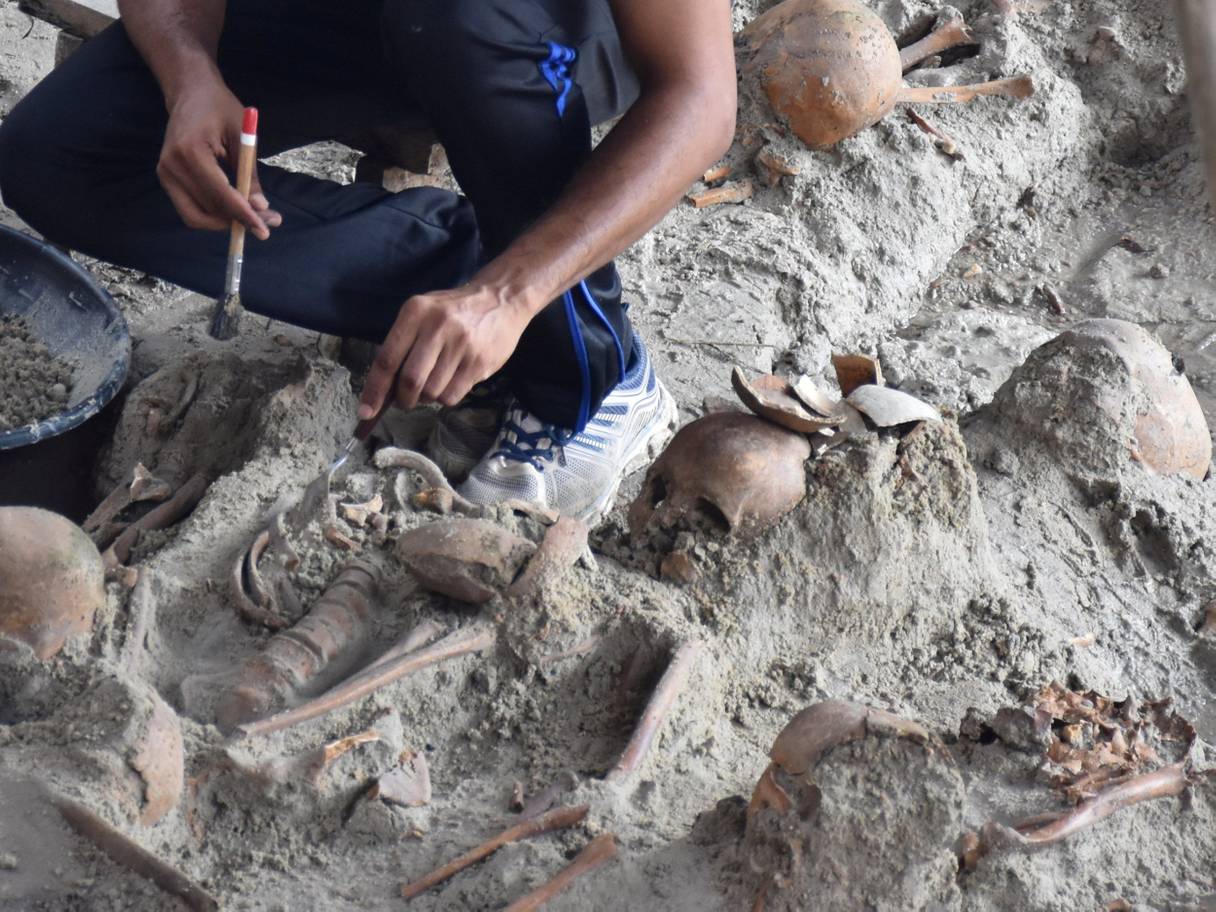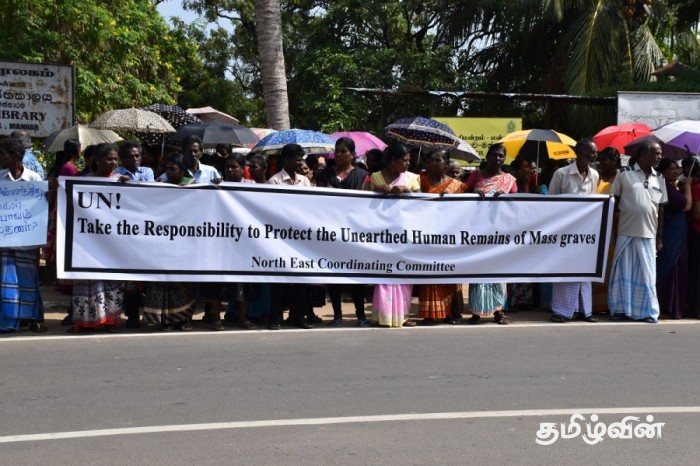Image: Staff dig up skeletons at a site of a former war zone in Mannar, Sri Lanka ( REUTERS )
Excavators in Sri Lanka have found the skeletal remains of 21 children as well as signs of possible torture of the dead in the biggest mass grave in the country’s former civil war zone, Mannar, putting a spotlight on the island’s recent record of human rights violations.
So far 276 skeletons have been exhumed, with forensic archaeologist Professor Raj Somadeva saying the number already makes it the “largest mass grave ever explored on the island”.
“We have excavated only 70 per cent of the gravesite, so the body count is bound to be much higher,” Professor Somadeva told The Independent.
Metal objects that appear to bind together the legs of the dead have raised new questions about what happened to the victims in the mass grave.
Who they were – and who killed them – remains uncertain. However experts agree the presence of children shows this was “certainly a [whole] community of people”.
The excavation, which started in May when a construction worker stumbled upon a human bone, is still in its early stages according to the chief investigation officer of the Mannar mass grave, Dr Saminda Rajapakse.
P Nagamma, a 67-year-old Tamil woman, said she believed her 18-year-old son lies buried in the Mannar mass grave. She told The Independent he was arrested by the Sri Lankan military on suspicion of being a terrorist in the early Nineties.

